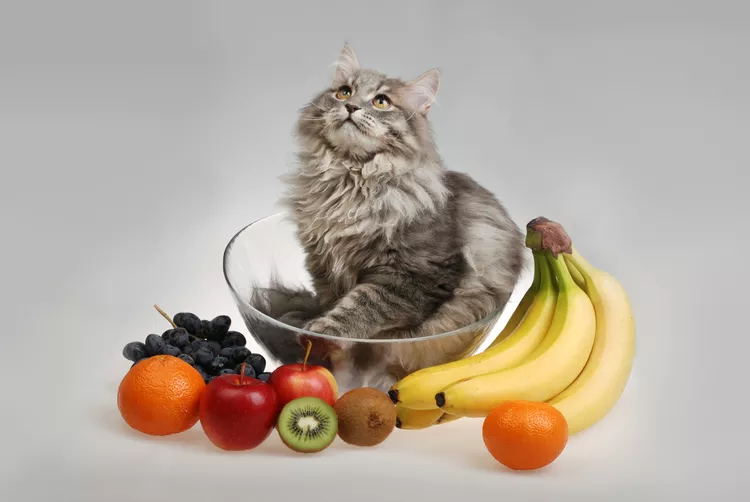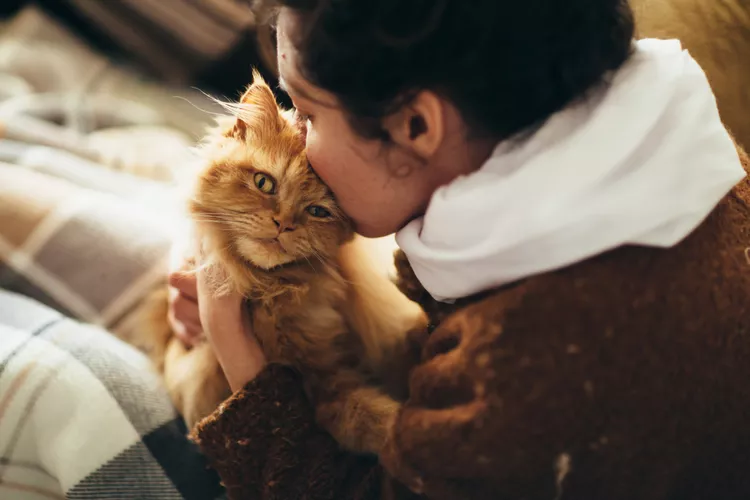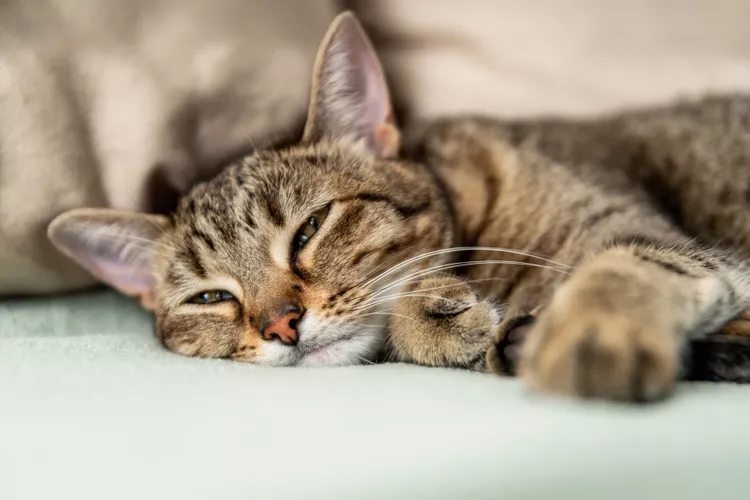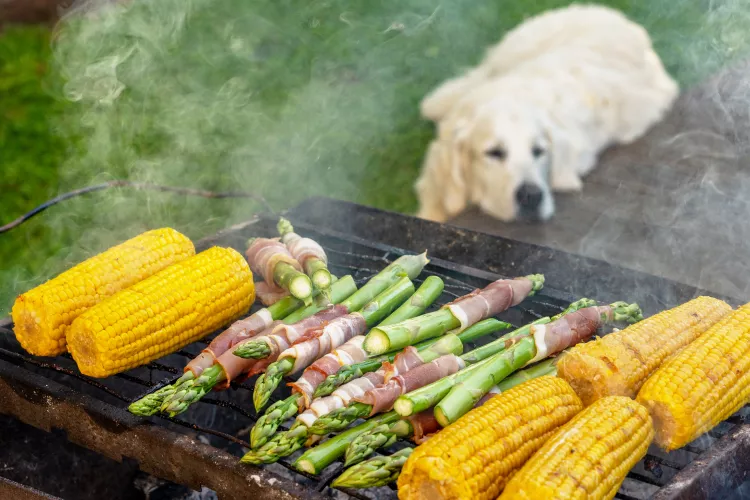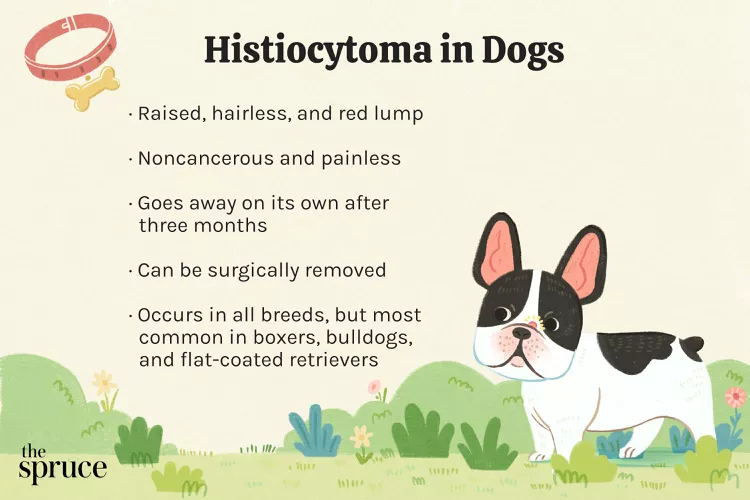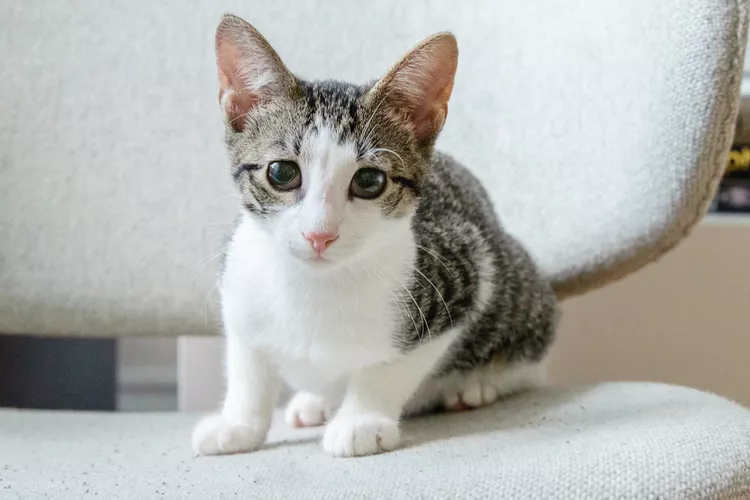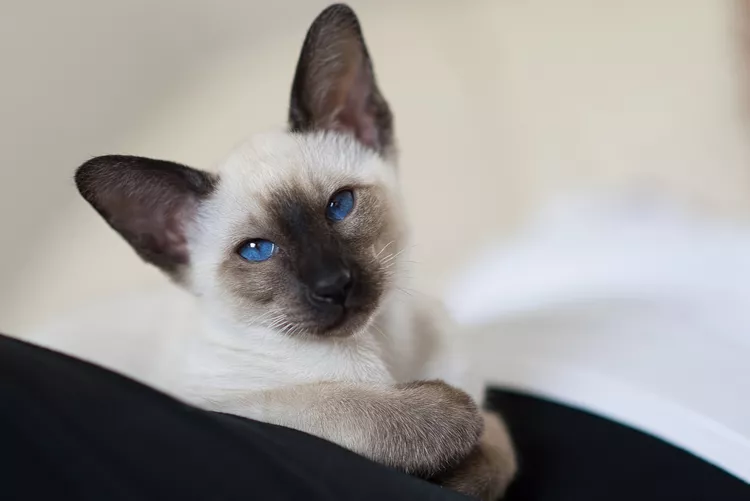- 01 of 10
Apples
Apples are generally safe for cats as long as you take a few precautions. Remove the apple seeds and core before offering it to your cat, as apple seeds contain small amounts of cyanide, which can be harmful if ingested in large quantities. The cyanide content in apple seeds is generally not a concern for humans or cats if consumed in small amounts, but it's best to err on the side of caution and remove the seeds. Additionally, it's best to peel the apple and cut it into small, manageable pieces for your cat.
- 02 of 10
Blueberries
Blueberries are generally safe for cats and can even provide some nutritional benefits. They're low in calories and contain vitamins, minerals, and antioxidants. Your cat may prefer to play with the berries rather than eat them, but you can offer a few blueberries as an occasional treat or mix them with your cat's regular food. Ensure that the blueberries are thoroughly washed and remove any stems before feeding them to your cat.
- 03 of 10
Cantaloupe
Cantaloupe is generally safe for cats and can be offered as an occasional treat. It contains vitamins A and C, as well as fiber, which can be beneficial in small amounts. When offering cantaloupe to your cat, make sure to remove the rind and seeds. The rind can be difficult for cats to digest, and the seeds can pose a choking hazard or contain toxic substances. Cut the cantaloupe into small, manageable pieces before giving it to your cat.
- 04 of 10
Coconut
Coconut is generally safe for cats to eat in small amounts, but there are a few things to consider:
Coconut meat: Cats can consume small amounts of fresh or unsweetened coconut meat. It contains healthy fats and fiber. However, some cats may not be interested in the taste or texture of coconut.
Coconut milk or water: While coconut milk or water may be safe for cats to consume in small quantities, ensure it does not contain any added sugars, sweeteners, or artificial additives. Keep in mind that coconut milk and water are not nutritionally necessary for cats and should only be given as an occasional treat.
Coconut oil: Coconut oil is sometimes used in small amounts as a supplement for certain health benefits in cats, such as improving coat condition or aiding digestion. However, it's essential to consult with your veterinarian before introducing coconut oil into your cat's diet, as the appropriate dosage and usage can vary depending on your cat's specific health needs.
Continue to 5 of 10 below - 05 of 10
Watermelon
Watermelon is generally safe for cats and can be offered as an occasional treat. It can be a refreshing and hydrating option during hot weather. When feeding watermelon to your cat, make sure to remove the seeds and rind. The seeds can be a choking hazard, and the rind is difficult for cats to digest. Offer small, bite-sized pieces of the juicy flesh to your cat.
- 06 of 10
Strawberries
Strawberries are generally safe for cats and can be offered as an occasional treat. However, only offer strawberries to your cat in small quantities. They are high in natural sugars and should be given sparingly to prevent excessive sugar intake. Wash the strawberries thoroughly to remove any potential pesticides or contaminants. Remove the stems and leaves before offering them to your cat.
- 07 of 10
Bananas
Bananas are generally safe for cats and can be offered as an occasional treat. Bananas are high in natural sugars and should be given sparingly to prevent excessive sugar intake. You can offer small pieces of ripe banana to your cat, but the banana peel is not suitable for cats to consume. It is difficult for them to digest and may cause digestive issues.
- 08 of 10
Pumpkin
Yes, cats can eat pumpkin, and it can be beneficial for them in certain situations. It's sometimes recommended for cats to help with digestive issues such as constipation or diarrhea. However, keep a few things in mind:
Canned pure pumpkin: When feeding pumpkin to your cat, make sure to use plain, canned pure pumpkin or plain cooked pumpkin without seeds. Avoid pumpkin pie filling or anything that contains added sugars, spices, or other additives.
Small quantities: Offer pumpkin to your cat in small amounts. A teaspoon or two is typically sufficient. Too much pumpkin can cause loose stools.
Introduce gradually: If you're introducing pumpkin to your cat's diet for the first time, start with a small amount and gradually increase if needed. Monitor your cat's reaction to ensure they tolerate it well.
Consult your veterinarian: If your cat has digestive issues or if you're considering adding pumpkin to their diet for any specific reason, consult with your veterinarian. They can provide guidance on the appropriate amount and frequency of pumpkin for your cat's individual needs.
Continue to 9 of 10 below - 09 of 10
Pineapple
While cats can technically eat pineapple, it's best to offer sparingly. Pineapple contains a high amount of natural sugars, which can be challenging for cats to digest and may lead to digestive upset, including diarrhea. When offering pineapple, fresh is best. Avoid canned pineapple in juice as it contains even more sugar. And keep the skin and leaves away from your cat as they are very hard to digest.
- 10 of 10
Kiwi
Kiwi is not considered toxic to cats, but some cats won't tolerate it well. Kiwi is high in fiber, which can be challenging for cats to digest. It may lead to digestive upset, including diarrhea or gastrointestinal discomfort.
If you are considering feeding kiwi to your cat, consult with your veterinarian for personalized advice, taking into account your cat's specific health and dietary needs.
If you do decide to offer kiwi, be sure it's peeled and cut into small pieces. Give your cat no more than a bite or two. As always, exercise caution and monitor your cat's reaction when introducing any new food. If you notice any adverse effects or digestive issues, stop feeding kiwi and seek guidance from your veterinarian.
Fruits to Avoid
There are certain fruits that cats should avoid due to potential toxicity or digestive issues. Cats' digestive systems are designed to process a primarily meat-based diet, so fruits should only be given in small quantities as an occasional treat. Here are some fruits that are generally considered unsafe for cats:
Grapes and raisins: Grapes and raisins can be toxic to cats and may cause kidney damage or failure. It's best to avoid giving them to your cat entirely.
Citrus fruits: Citrus fruits such as oranges, lemons, and grapefruits contain essential oils and compounds that irritate cats' digestive systems. These fruits are best avoided.
Avocado: Avocados contain a substance called persin, which is toxic to cats. It can cause vomiting, diarrhea, and other digestive issues.
Pits, seeds, stems, leaves: Cats should not consume the pits or seeds of any fruits, as they may pose choking hazards or contain toxic substances. In addition, the stems and leaves of many fruits are either poisonous or difficult to digest and should be avoided entirely.
If you suspect that your cat has ingested a toxic fruit or is experiencing any symptoms of illness after consuming a fruit, immediately contact your veterinarian for advice and assistance.
